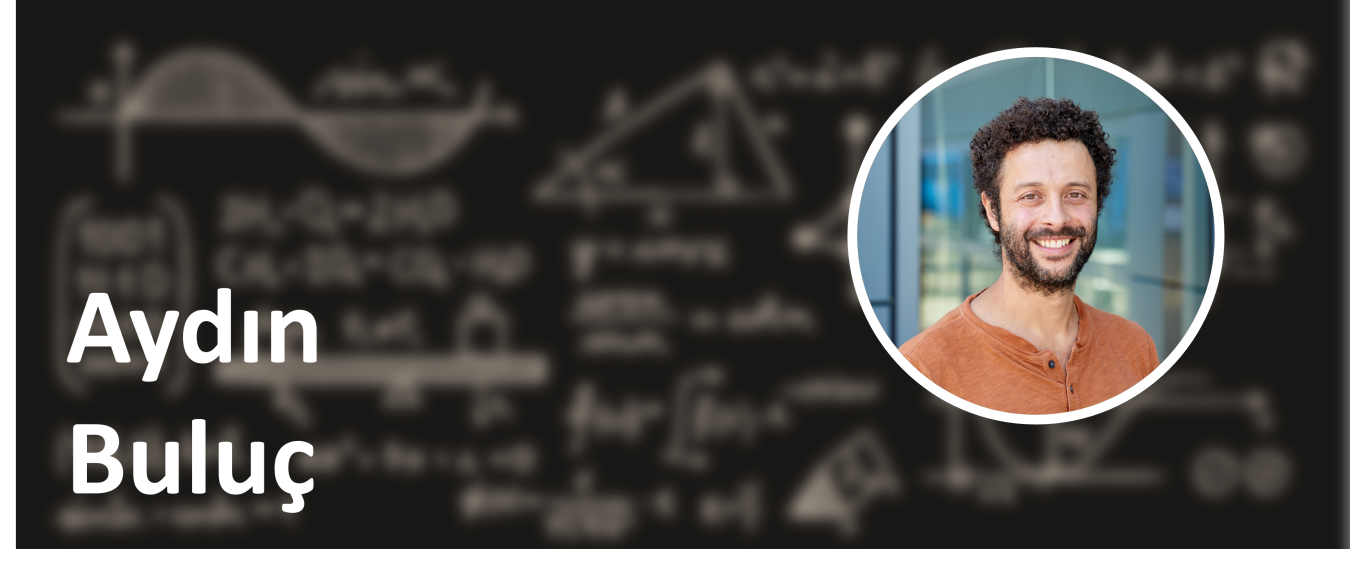To solve challenges with ever-larger data sets, Aydin Buluç develops algorithms to increase computers’ efficiency and reduce run time.
June 16, 2025Sandra Allen McLean

Sandra Allen McLean (sandra.mclean@science.doe.gov) is a communications specialist for the Office of Science in the Office of Communications and Public Affairs. Sandra is responsible for identifying, curating, or creating lay-language content about Office of Science-funded research for DOE web sites, popular and trade media, and stakeholder education. She researches and writes the historical Milestone Tweets for the office Twitter account @DOEScience.
Sandra holds an associate degree in American Sign Language interpreting, a bachelor’s in science journalism and biology, and a master’s in Information Sciences. Her hobbies are sewing – especially costumes! – and lesesucht, compounded by extreme tsundoku.
WHAT DID THE 2013 EARLY CAREER AWARD ALLOW YOU TO DO?
The 2013 Early Career Award (ECA) allowed me to develop a new class of graph algorithms that reorganize how software runs in a way that is easier for hardware to process.
Graphs in computing allow us to model various scientific phenomena. These include the folding of proteins, interactions between atoms, and dependencies between tasks. But graph algorithms do not perform very many arithmetic operations per the volume of data they access. That characteristic makes them inefficient on existing hardware.
The reorganization I developed makes the resulting computations faster and more efficient.
My team also created parallel algorithms that can be scaled up to more compute nodes. This change allows us to solve larger problems that were not solvable with previously known algorithms.
Currently, I am focusing on a slightly different aspect of graphs. A graph is composed of vertices that often represent data points as well as edges between vertices that represent the interactions between data points. Most interesting graphs are sparse. This means that the overwhelming majority of vertices do not have an edge between them.
My current work is focusing on a broader definition of sparsity. My team is studying sparse computations not only on graphs but also topological data analysis, matrices, and tensors. These areas are very complex and often deal with data that is incomplete or has high signal-to-noise. In particular, tensors model multi-way relationships. I am currently directing a Mathematical Multifaceted Integrated Capability Center named Sparsitute on this topic with four universities and two national labs.
The research our team initiated with the ECA paved the way for subsequent discoveries and collaborations, including our work on genome assembly and protein clustering. My team is continuing to work with biologists on other computational problems. We also established new collaborations with other domain scientists such as nuclear physicists.
ABOUT:
Aydin Buluç is a senior scientist in the Performance and Algorithms Research (PAR) group within the Computational Research Division at Lawrence Berkeley National Laboratory.
SUPPORTING THE DOE SC MISSION:
The Early Career Research Program provides financial support that is foundational to early career investigators, enabling them to define and direct independent research in areas important to DOE missions. The development of outstanding scientists and research leaders is of paramount importance to the Department of Energy Office of Science. By investing in the next generation of researchers, the Office of Science champions lifelong careers in discovery science.
For more information, please go to the Early Career Research Program page.
RESOURCES:
E Georganas, A Buluç, J Chapman, L Oliker, D Rokhsar, and K Yelick, “Parallel De Bruijn Graph Construction and Traversal for De Novo Genome Assembly.” SC ’14: Proceedings of the International Conference for High Performance Computing, Networking, Storage and Analysis, New Orleans, LA, USA, 437, (2014). [DOI: 10.1109/SC.2014.41]
E Solomonik, A Buluç, and J Demmel, “Minimizing Communication in All-Pairs Shortest Paths.” IEEE 27th International Symposium on Parallel and Distributed Processing, Cambridge, MA, USA, 548, (2013). [DOI: 10.1109/IPDPS.2013.111]
A Azad, GA Pavlopoulos, CA Ouzounis, NC Kyrpides, A Buluç, “HipMCL: a High-Performance Parallel Implementation of the Markov Clustering Algorithm for Large-Scale Networks.” Nucleic Acids Research, 46, e33, (2018). [DOI: 10.1093/nar/gkx1313]
Additional profiles of the Early Career Research Program award recipients can be found at the Early Career Program highlights page.
The Office of Science is the single largest supporter of basic research in the physical sciences in the United States and is working to address some of the most pressing challenges of our time. For more information, please visit the Office of Science website.



